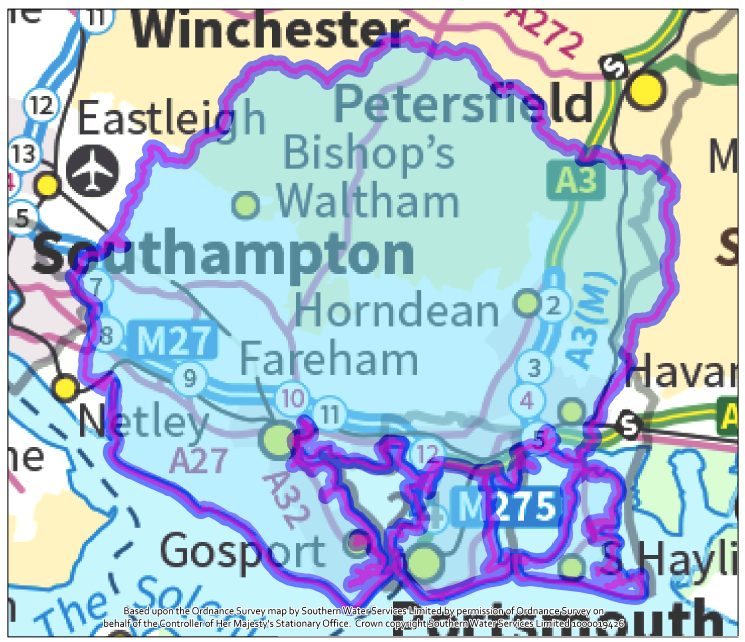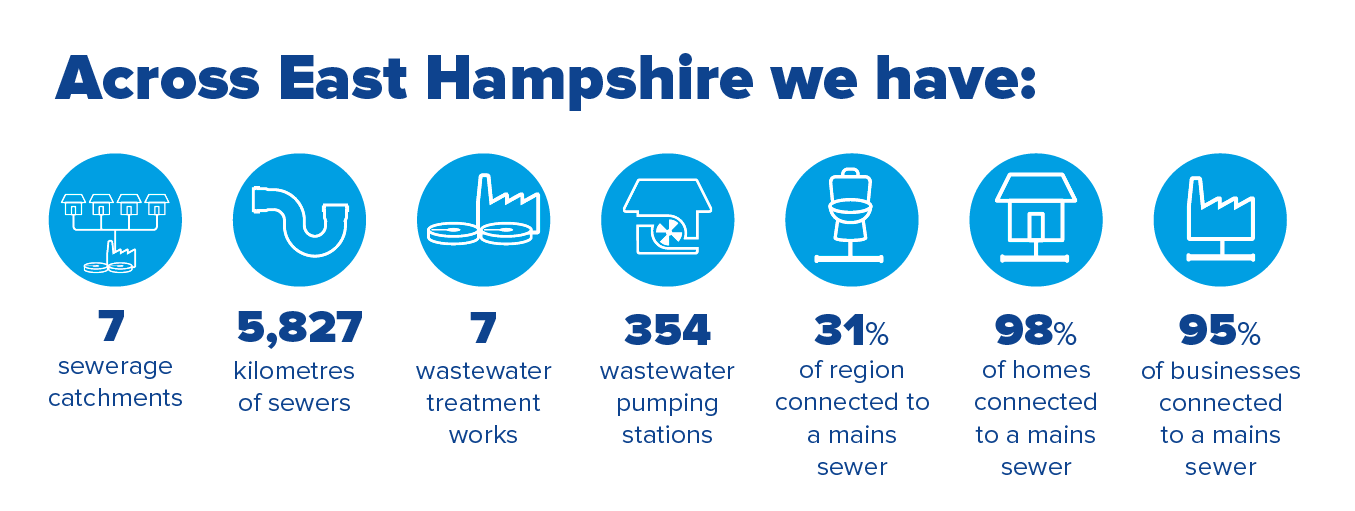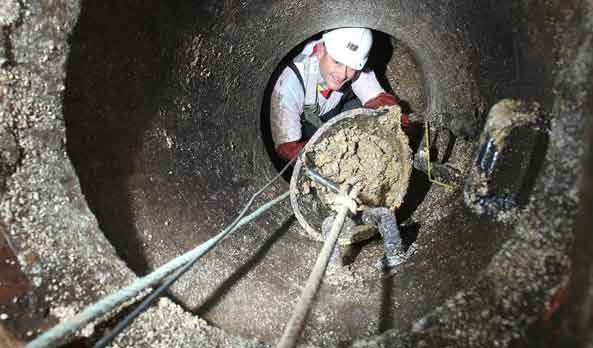East Hampshire River Basin Catchment

We have developed the first Drainage and Wastewater Management Plan (DWMP) for the East Hampshire River Basin Catchment.
We have 7 wastewater systems in this catchment, with 354 pumping stations and 5,827 km of sewers. We cover 31% of the geographical area (mainly the urban areas and villages including Portsmouth, Havant, Waterlooville, Fareham and Gosport) with 98% of the homes in the catchment connected to our wastewater systems.

Our DWMP sets out our priorities for the East Hampshire River Basin Catchment. These include:
- Reducing the number of spills from the 93 storm overflows which together currently spill around 1200 times per annum
- Separating or attenuating excess rainwater in the sewer networks to reduce the risks of flooding and frequency of storm overflow discharges, especially in Southsea, Bursledon, Denmead and Eastney
- Investigating the potential impact of wastewater discharges on Good Ecological Status in designated Habitats including the Solent and Langstone Harbours
- Implementing measures to reduce nutrients in discharges at Budds Farm WTW
- Planning for potential significant developments at Portsmouth, Fareham, Tipner West, North Whiteley and Waterlooville
- Improving the resilience of our networks and treatment works to prevent pollution incidents, particularly in Gosport, Fareham, Burseldon, Drayton and Waterlooville
- Reducing the risk of sewer blockages by increasing sewer jetting and targeting customer campaigns to reduce the amount of FOG (fats, oils and grease) and unflushables in the sewer network around Havant
- Reducing the risk to groundwater by reducing leakage from our sewers in the Havant, Horndean and Waterlooville areas.
All the stages we followed in developing the DWMP for East Hampshire are set out in the subsections below. Please explore these pages to find out more. You can find detailed investment needs in the tables on the East Hampshire Options Development and Appraisal page.


Working with others
We want to work with other organisations responsible for drainage, flooding and protection of the environment to develop the East Hampshire DWMP.

Risk based catchment screening
Results of our risk based catchment screening process for the East Hampshire catchment.


Problem characterisation
Find out about the causes and drivers of risk in the East Hampshire catchment.

Options development and appraisal
See how we may be able to reduce the risks in the East Hampshire catchment.

Programme Appraisal
Find out about our programme for our Level 3 plans in the East Hampshire catchment.
